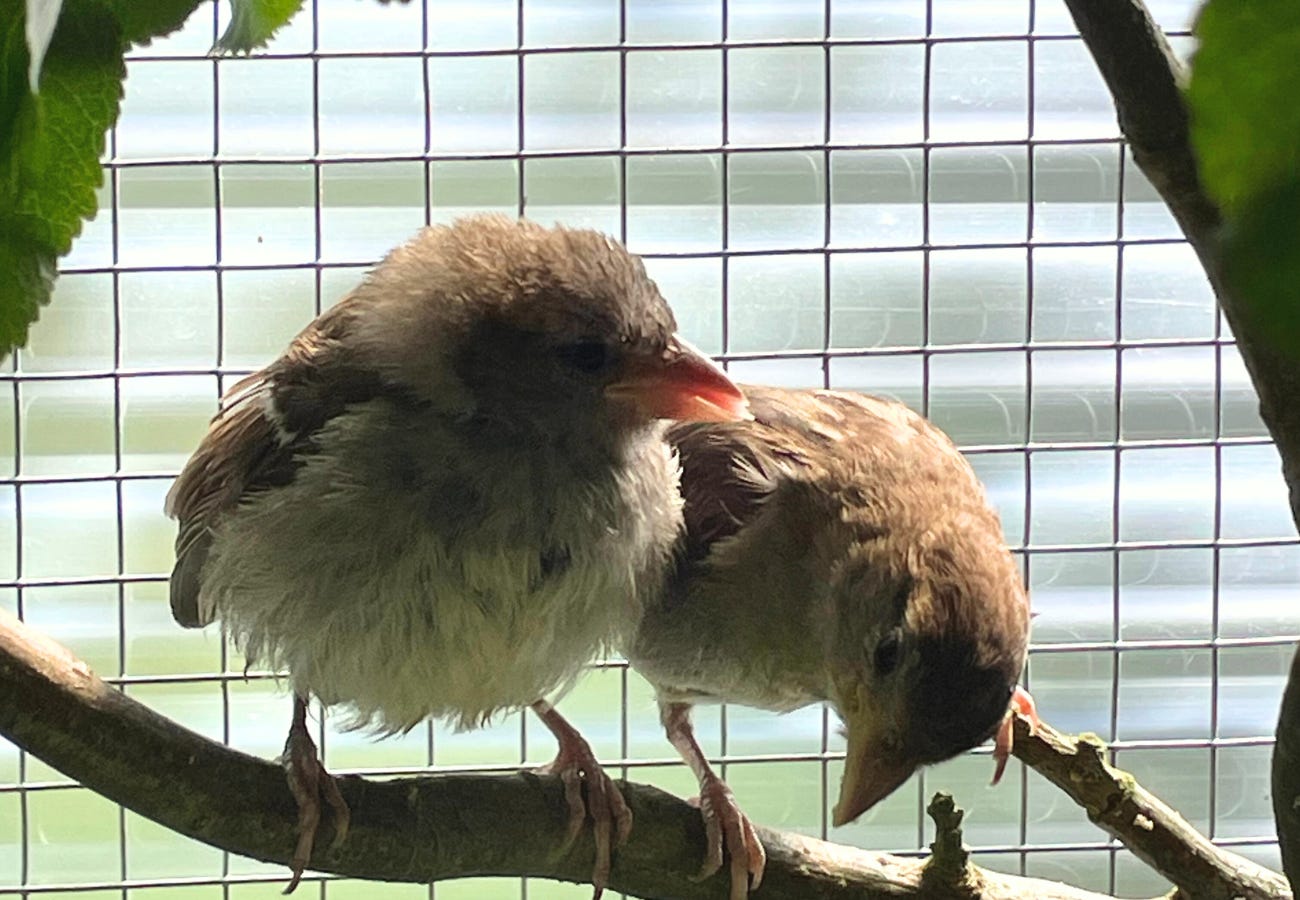Re: union
with the great oceanic question mark from which we momentarily crest
Hello. This post is about Death & Birds.
I have cried with happiness twice this year.
As you know, Norman the Sparrow and his crew arrived and settled into the aviary. Five of the seven Sparrows were ready for release not long after arriving—so I set about the task of separating them. Norman, whose development has been slower than his friends, was an easy catch; the others were near impossible. To cut a long and stressful story short, not five, but six Sparrows ended up back in the wild; leaving Norman alone, and me devastated.
I tried desperately to atone for my failure by making Norman’s space as cozy as possible, adding little houses in an attempt to distract him from his newly found solitude. Technically, he was fine. He wasn’t stressed, he was eating and drinking, but he had never been alone before, and I was nauseous with guilt and self-recrimination.
Early the following morning, David woke me to say that there was a Sparrow sitting on top of the aviary, chirping away at Norman. I went down, and was able to feed this little fellow, but he was jumpy. He would tentatively bite a little baby-bird food from the stick and then dart off into the ivy-covered trunk of a nearby Oak tree, he and Norman tweeting back and forth the whole time. Catching him didn’t seem like an option, so we put some foliage and seeds and water on the wire-mesh roof of the aviary.
All day and into the next, this Sparrow would dart from Oak to aviary and back, he and Norman squeaking at each the other all the while. That evening I went out to find him sat on top of the aviary, his beak poking through a hole in the wire, and Norman, inside, on the highest branch he could possibly reach, stretching upwards towards him. The pair an inch apart, making little mewing noises.
Aching at the sight, and with little thought, I rolled a heavy wood stump from nearby to stand on, and took off the shirt I was wearing. Thankfully, David was nearby and had clocked what was happening so quietly came over, ready. I stood statue, hardly breathing, before quickly throwing my shirt over the top of the aviary, scooping the Sparrow up and, with David swiftly opening the door, putting him back inside. The relief was exquisite.



